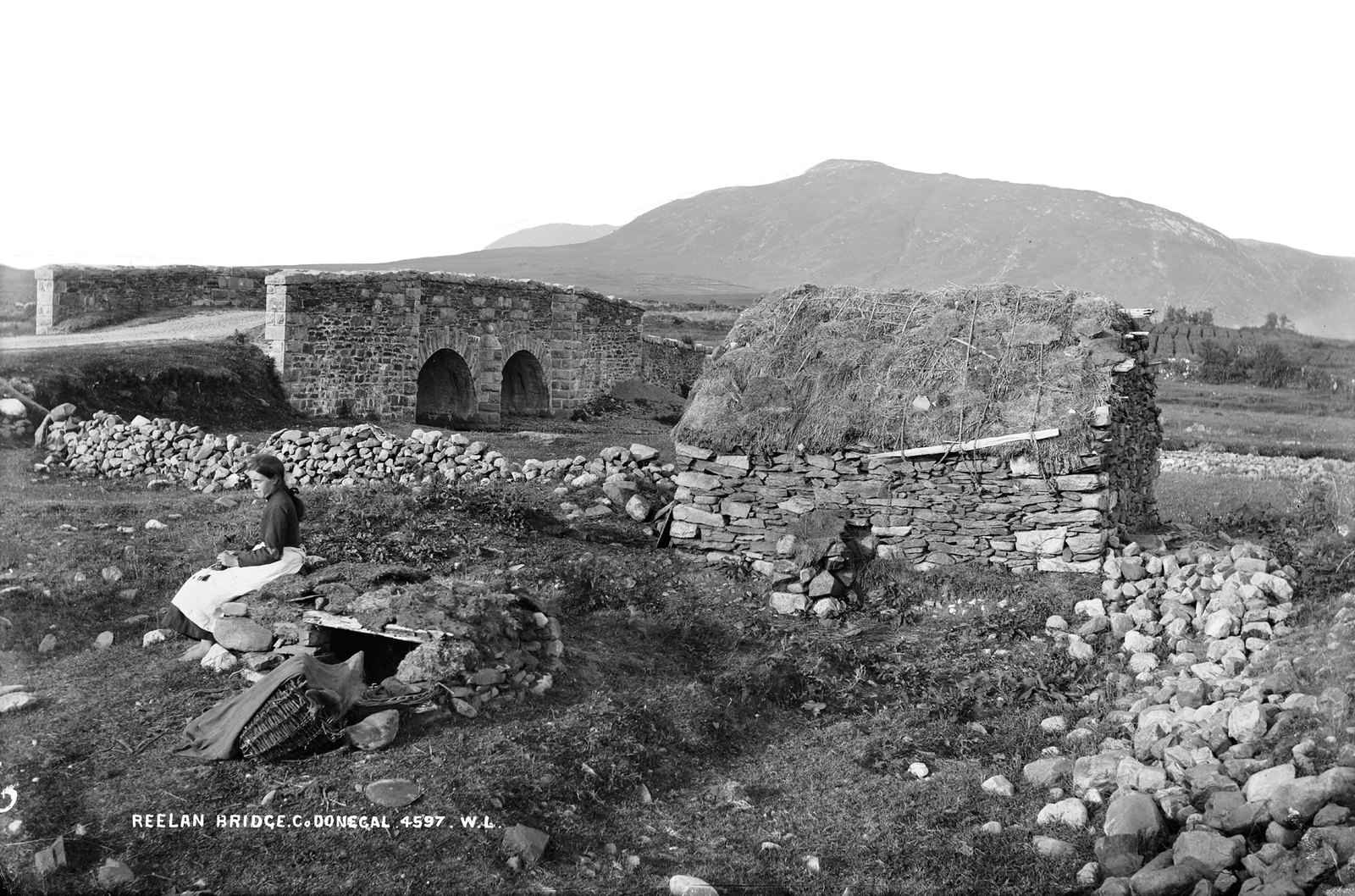
The "Dry Arch" (bridge over the Shallogan River), Straboy, County Donegal: photo by Robert French, c. 1890s (The Lawrence Photograph Collection, National Library of Ireland)
"It was a subject of regret and absurd as well on the face of it, and no small blame to our vaunted society, that your man in the street, when the system really needed toning up, for the matter of a couple of paltry dollars was debarred from seeing more of the world he lived in instead of being always and ever cooped up since my old stick-in-the-mud took me for a wife," said she, speaking as if to herself, or no one in particular.
He
never stirred upon the utterance of these words, if indeed he heard
them, in which event, had he heard, and she known he did, she might have
pressed on, playing the advantage, but for the sound of the telephone
device, which had been installed just the previous Thursday, and
produced a penetrating tone audible to anyone in range of their hut,
covered as it was with sod and straw, straw and sod, during that whole
period, or at least the greater part of it, so far as is known.
"The finespun weft it is then," he told his left shoe, having for a moment looked down and away from the bright frail thread of stars drawn through the dense warp of the night, remembering the shutter and the picking stick going stiff in the knobbled hand after a time, "the pitiful industry of the weaver that never ceases, wearying, growing always older, going slowly from weft to wight in the straw and the sod, or beneath, perhaps beneath the mud and clay in which it was all going to be stuck, in any case, my dear," sighed he, as the heavy stone gate to the smallholding beyond slowly groaned to a close once again.
Bugs Bunny could find no apt rejoinder and so, gathering her skirts about her as protection against the filth of the public ways, she re-entered by the narrow passage through which she had first come, so many years before, and once safely within, resumed her waiting and counting, counting and waiting, as it was not yet Tuesday, when the delivery wagon had been expected.
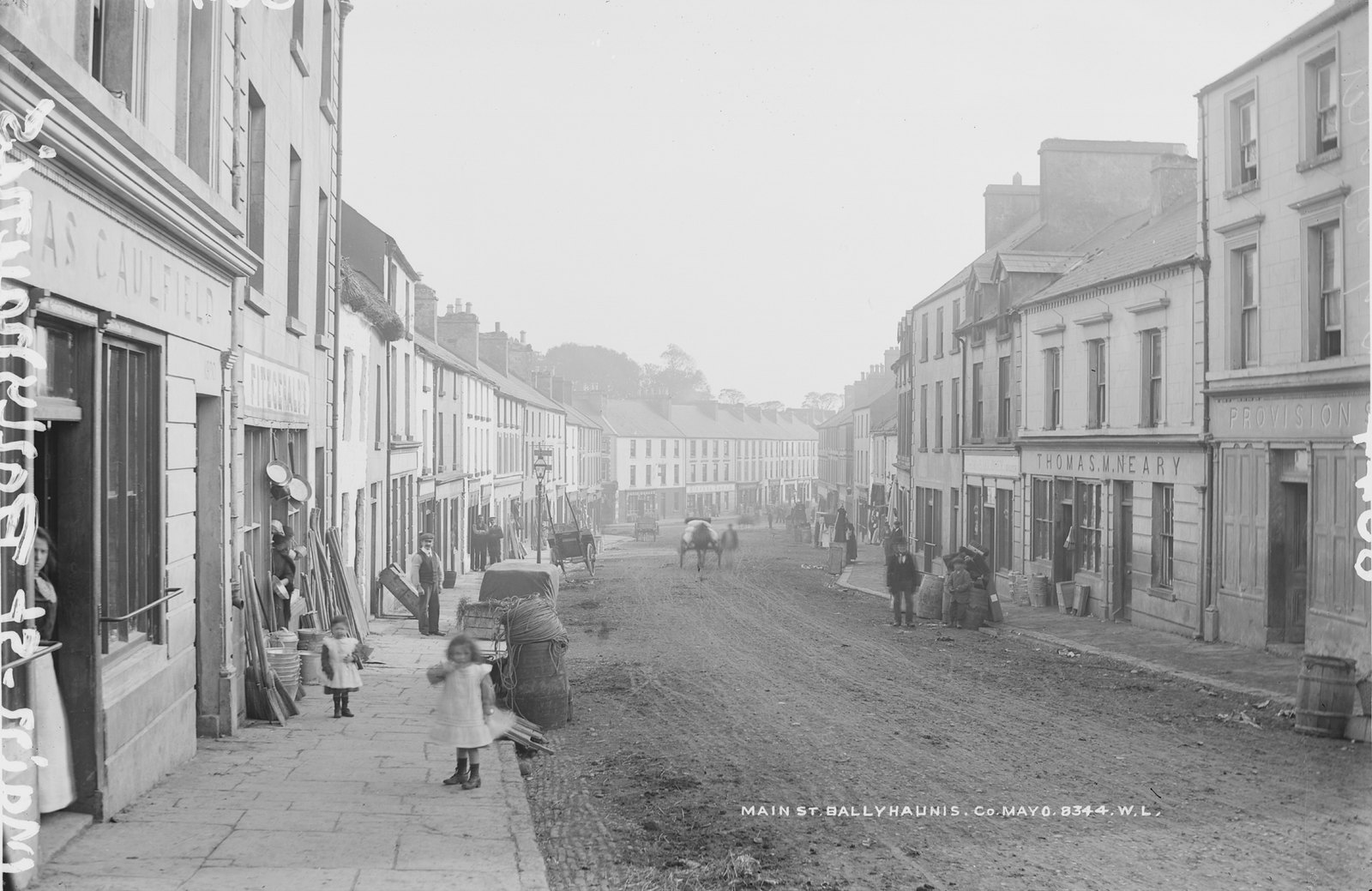
Main Street, Ballyhaunis, County Mayo: photo by Robert French, c. 1890s (The Lawrence Photograph Collection, National Library of Ireland)
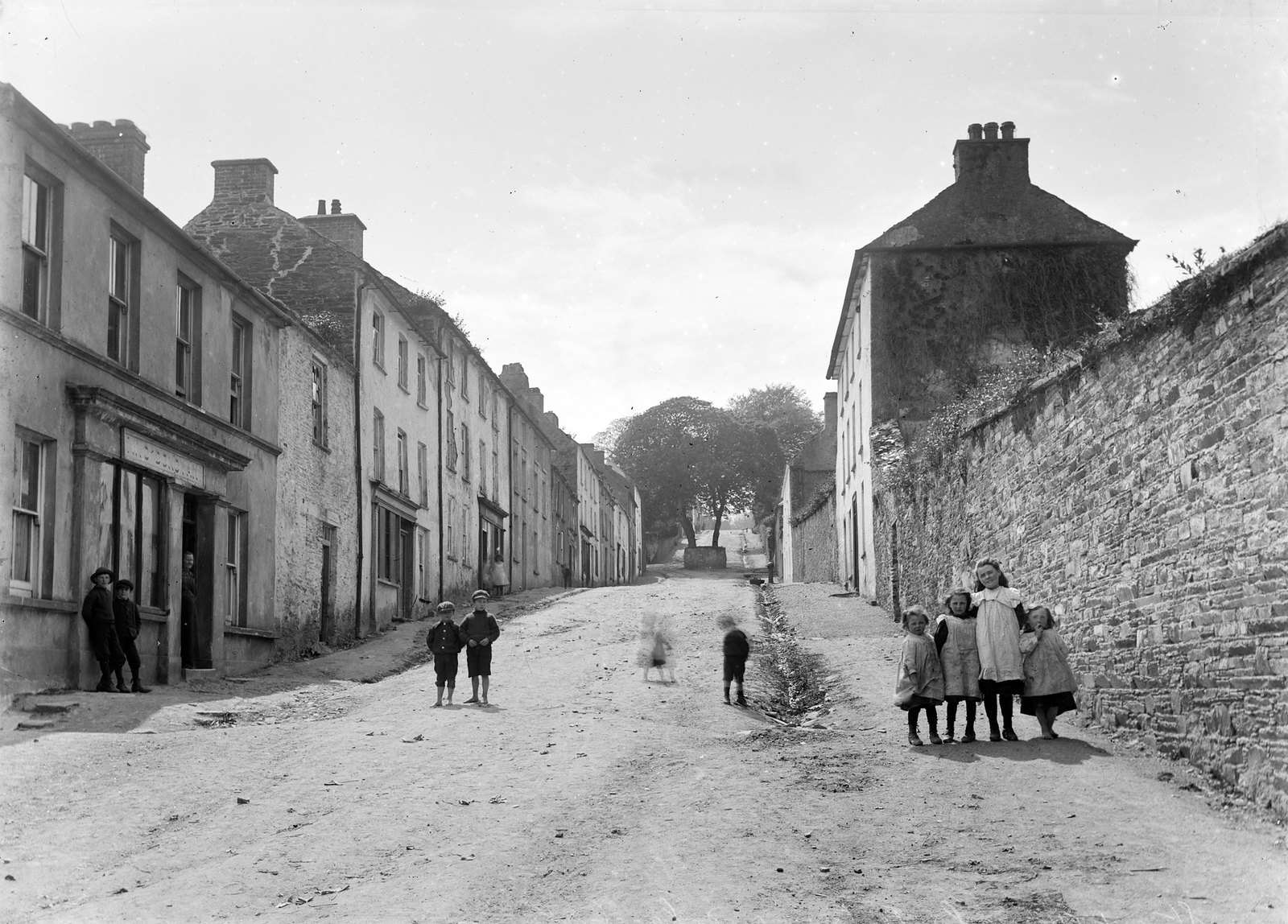
Castletownshend, County Cork: photo by Fergus O'Connor, c. 1910 (Fergus O'Connor Collection, National Library of Ireland)
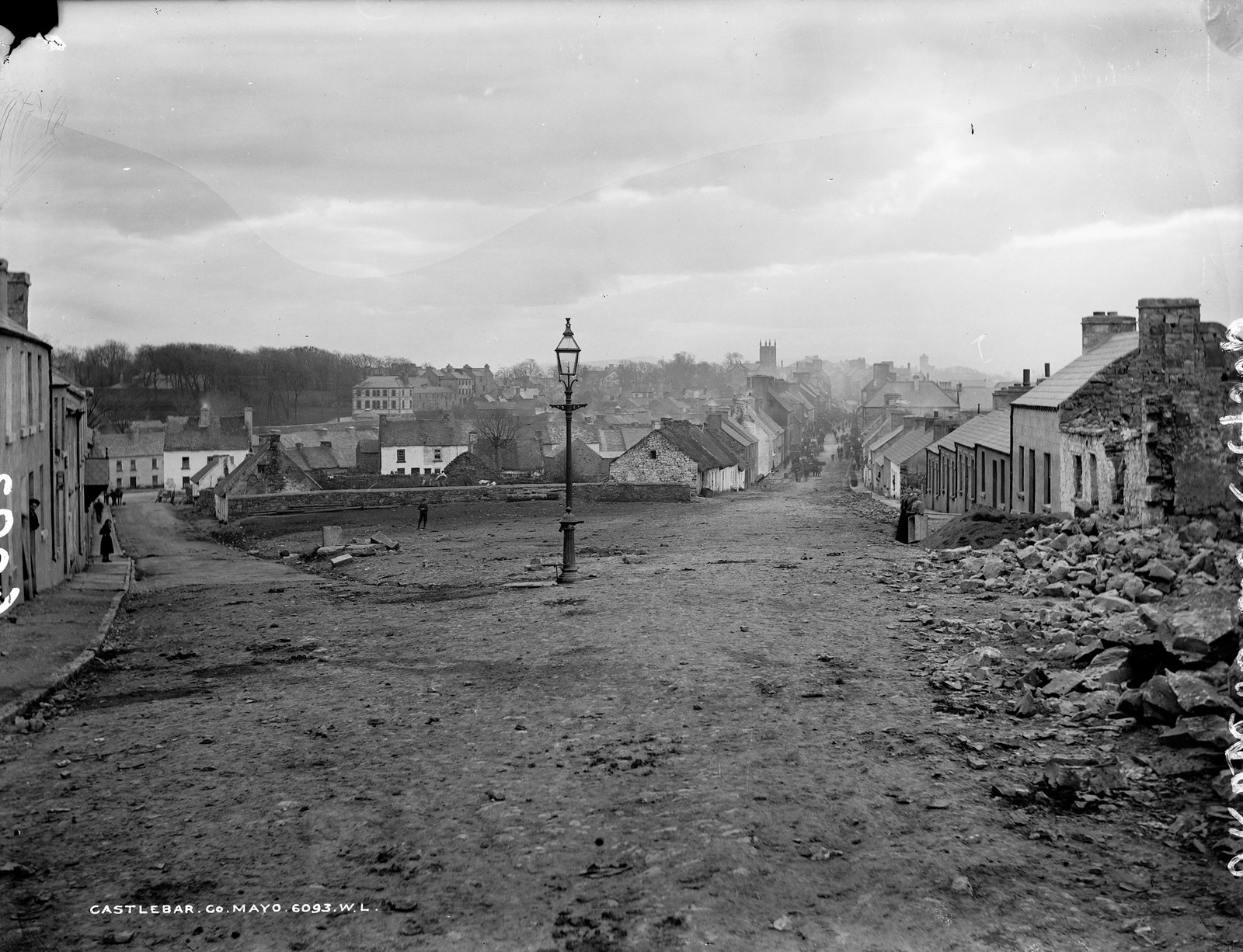
Castlebar, County Mayo: photo by Robert French, between 1895 and 1900 (The Lawrence Photograph Collection, National Library of Ireland)
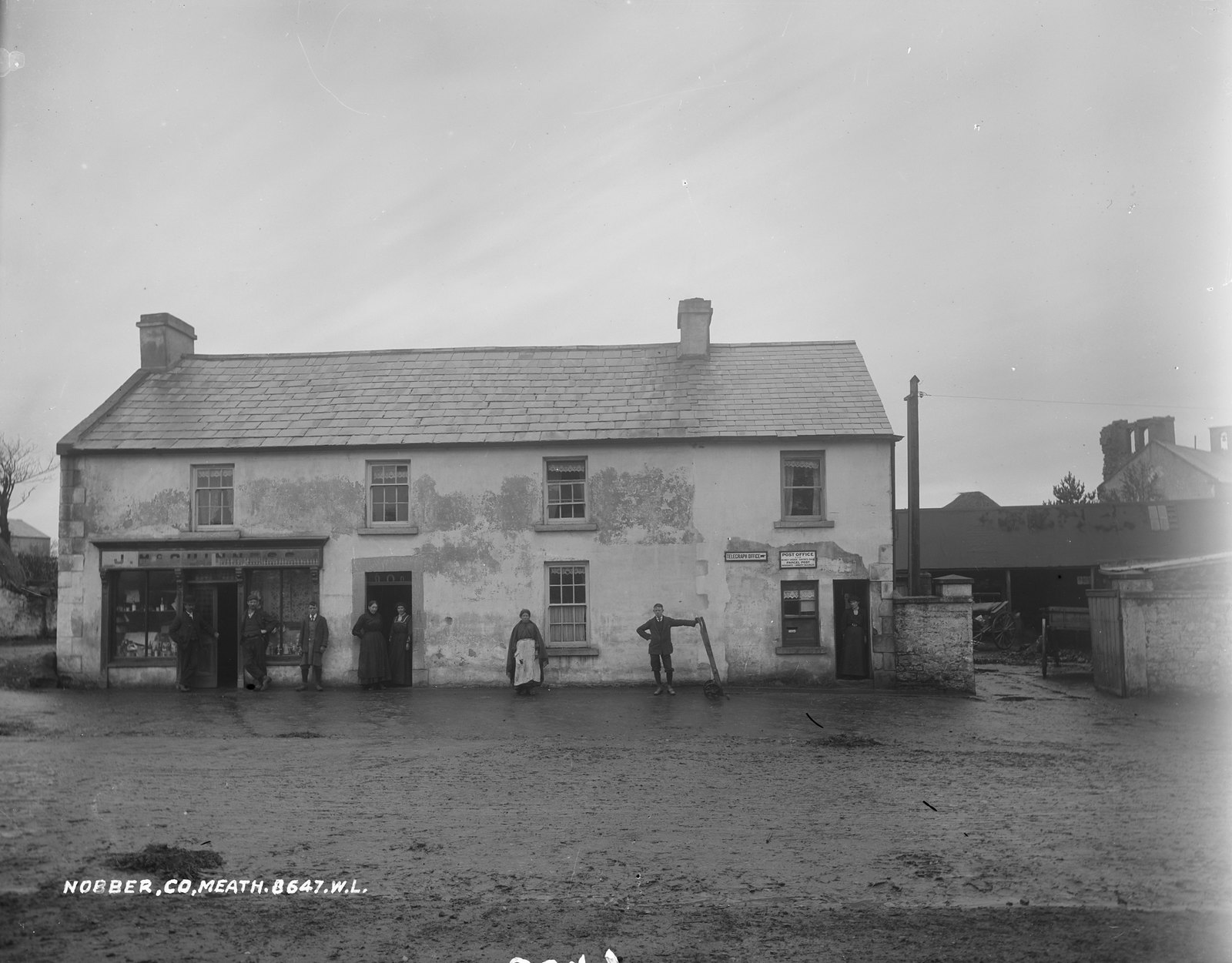
McGuinness's shop, Nobber, County Meath: photo by Robert French, c, 1901-1911 (The Lawrence Photograph Collection, National Library of Ireland)
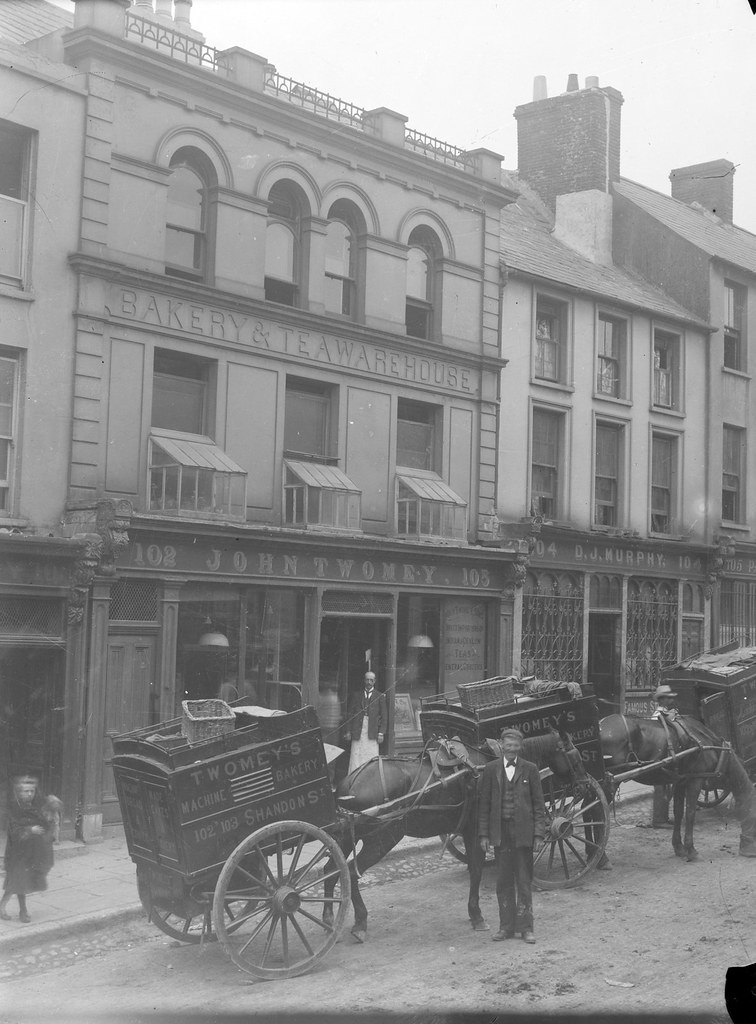
Twomey's Machine Bakery, Shandon Street, Cork: photo by Fergus O'Connor, c. 1910 (Fergus O'Connor Collection, National Library of Ireland)
Amazing photographs, with that uncanny quality of presenting scenes from the past that seem to be still going on. There's much in present-day Ireland that hasn't changed much since these pictures were taken. But is that you or Flann O'Brien?
ReplyDeleteMy dear Mr TPW,
ReplyDeleteIn point of fact Mr O'Nuallain could not be here as he has had to go down to the county Clare on some private business. You see his idea is to tour the chief towns. What you lose on the one you can make up on the other, says he.
They do do a fine scan over at the library, do they not?
Exiting "character" for the nonce, have you ever noticed by the way, being as it's Veterans' Day and all, how old war heroes never die, but just fade away, trailing remembrances that cause the rest of us to bow our heads in shame, for we were not there with them, fighting shoulder to shoulder, in the Ia Drang Valley, at Hamburger Hill, bombing Cambodia, invading Laos and the rest? All of course for the greater glory.
ReplyDeleteOne of the several extensively decorated war heroes among my erstwhile high school classmates shared this, a moment ago:
“When a Soldier Gets To Heaven,
To Saint Peter He Will Tell;
One More Reporting Sir,
I’ve Served My Time In Hell”
And here I could never so much as properly clean my buttons and brass. No. Better to have gone off and taken one's chances in the less bloody colonies.
Yes, I know. And on the subject of Hell, I think Leo Cullum says it best:
ReplyDeletehttp://www.condenaststore.com/-sp/I-just-feel-we-d-know-more-people-in-Hell-New-Yorker-Cartoon-Prints_i8545823_.htm
That one is on our refrigerator.
thanks for the post and the thread Tom and tpw...don't know about you guys but I always feel in shots like these that I was there...in the genes I guess though a different county same landscape and figures...
ReplyDeleteTerry, me too.
ReplyDeleteThe thing is though, wasn't the deal supposed to be that no matter who you were, and especially you, but also everyone really, whether you knew it or not, after a certain point (and there was no turning back, and you had always secretly known there wasn't), you were always in Hell, and never out of it, anyway, no matter what you did or who you were -- I mean if you were, like, for example -- dare we say it -- a Protestant?
Michael, me too and yes, likewise, totally.
.. but did he mean "even if"? or "especially if"...?
ReplyDelete